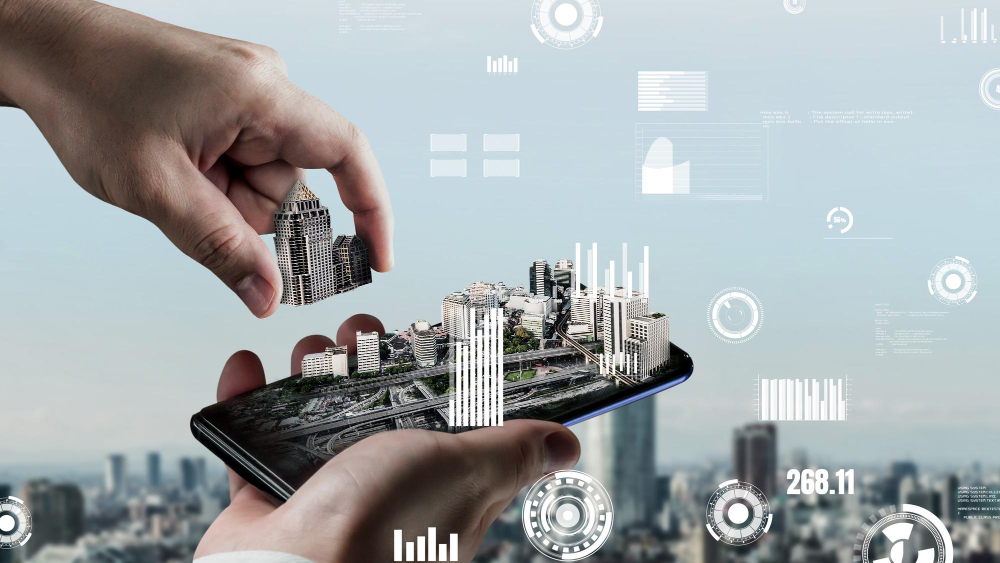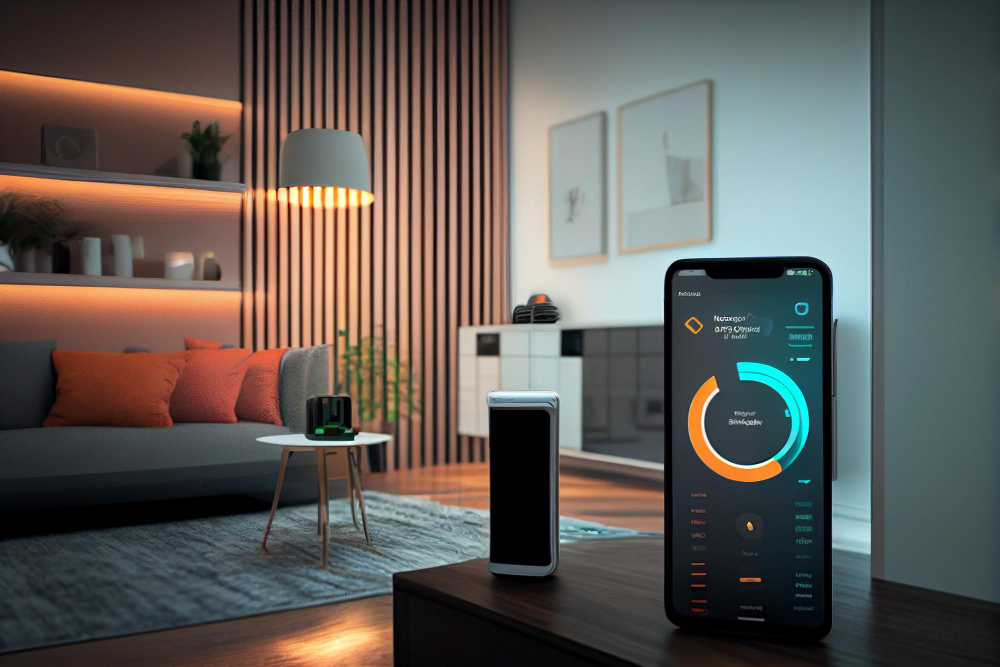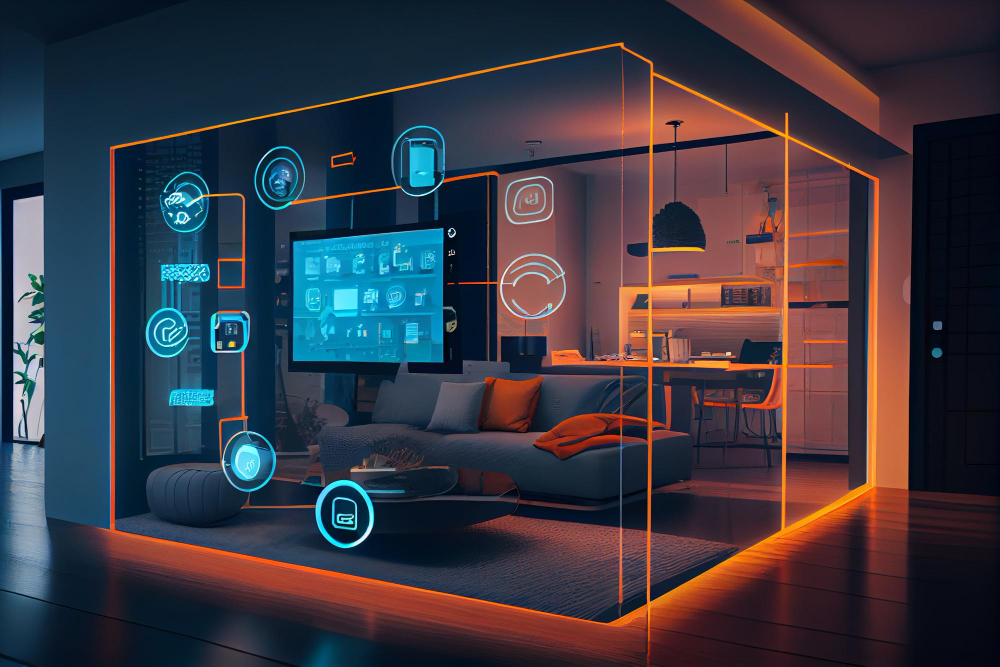What Emerging Tech Will Dominate Real Estate In 2023

Technology has become an indispensable part of almost every industry, and the real estate industry is no different. As new technologies emerge and evolve, they have the potential to disrupt how we buy, sell, and invest in property. The rapid evolution of technology has created a dynamic environment for real estate developers that is challenging traditional business models.
Virtual Reality (VR) and Augmented Reality (AR)
Virtual reality (VR) and augmented reality (AR) are expected to be major players in the real estate industry. The technology has been around for decades, but it’s only now gaining popularity with consumers and real estate companies.
Real estate professionals can use these technologies to enhance property viewing experiences for their clients by incorporating interactive features into virtual tours; for example: allowing buyers who are unable to visit homes due to distance or other constraints access via video conference calls where they could virtually walk through rooms using voice guidance from a real estate agent stationed inside each room (or someone else familiar with its layout).
Here are some ways these VR and AR are transforming the real estate industry:
Virtual Reality (VR) in Real Estate
VR allows users to immerse themselves in an entirely digital environment by wearing a headset that blocks out their surroundings and provides them with 360-degree views of virtual worlds.
- Virtual Property Tours: VR allows potential buyers and renters to take immersive virtual tours of properties from the comfort of their homes. This saves time and resources for both clients and agents, as it eliminates the need for in-person visits to multiple properties.
- Virtual Staging: VR enables agents to stage properties virtually, allowing clients to visualize how a space could be furnished and decorated. This can help potential buyers better understand the potential of a property and make more informed decisions.
- Architectural Visualization: VR can be used to create realistic visualizations of new construction projects, allowing clients to explore and experience properties before they are built. This can help generate interest and secure pre-sales for developers.
- Training and Education: VR can be used to provide immersive training for real estate agents, helping them develop their sales and negotiation skills in a safe and controlled environment.
Augmented Reality (AR) in Real Estate
AR is somewhat similar to VR but uses computer-generated graphics placed over real-life images through a mobile device or tablet screen so you can interact with these images as if they were actually present in front of you. Both VR and AR allow users to explore properties from anywhere.
- Interactive Property Information: AR can provide potential buyers with instant information about a property by scanning a QR code or using image recognition. This can include property details, pricing, and even virtual 3D models of the building.
- On-site Visualization: AR can be used to overlay digital content onto the physical environment, allowing clients to visualize changes to a property, such as different paint colors or furniture arrangements.
- Location-based Services: AR can be used to provide location-based information and services, such as nearby amenities, schools, and transportation options, helping clients better understand the neighborhood and its offerings.
- Interactive Marketing Materials: Real estate agents can create AR-enhanced marketing materials, such as brochures and business cards, that come to life when viewed through a smartphone or AR glasses. This can provide clients with additional information and create a more engaging experience.
Artificial Intelligence (AI) and Machine Learning (ML)
AI and ML will be the most significant emerging technologies in real estate in the next five years. AI can be used to automate property valuation and price prediction, while ML algorithms will be leveraged for personalized property recommendations. In addition, both techs can be used to automate tasks such as property management through automated systems that support users with data-driven insights.
Potential uses of AI and ML in Real Estate:
- Property Valuation and Pricing: AI-powered algorithms can analyze vast amounts of data, including historical sales, property features, and market trends, to accurately predict property values and suggest optimal pricing strategies. This helps real estate agents and property owners make more informed decisions when buying or selling properties.
- Property Recommendations: Machine Learning algorithms can analyze clients’ preferences, financial situations, and search history to provide personalized property recommendations. This not only saves time for both clients and agents but also increases the likelihood of finding the perfect property match.
- Property Management: AI and ML technologies can help property managers and landlords optimize building operations, such as energy consumption, maintenance schedules, and tenant satisfaction. For example, AI-powered predictive maintenance systems can identify potential issues before they become critical, reducing repair costs and minimizing downtime.
- Document Analysis and Automation: AI-powered document analysis tools can automate the review and processing of legal documents, such as leases and contracts, reducing the time and effort required by real estate professionals. This can help minimize human errors and ensure compliance with relevant regulations.
Blockchain Technology
Blockchain technology has been making waves in the real estate industry since its inception. The potential of blockchain to secure and streamline transactions, as well as tokenize assets like real estate assets, has been recognized by many investors and entrepreneurs alike.
Blockchain is being used for all sorts of things–from securing health records to voting systems–but it’s most commonly associated with cryptocurrencies like Bitcoin or Ethereum (the first use case). In essence, blockchain is essentially an immutable public ledger that keeps track of transactions between two parties without requiring either party’s permission or trust in third parties such as banks or governments (this is why you’ve probably heard about how “decentralized” cryptocurrencies are).
Smart Contracts: Streamlining Transactions and Enhancing Security
In today’s digital era, smart contracts are emerging as a transformative solution for the real estate industry, offering a more efficient and secure alternative to traditional paper-based transactions. Built on blockchain technology, smart contracts are self-executing agreements with the terms and conditions directly written into code, ensuring transparency, immutability, and traceability. These innovative contracts hold the potential to revolutionize the real estate sector by automating various processes, such as property transfers, lease agreements, and mortgage approvals, thereby reducing the need for intermediaries and lowering transaction costs.
Furthermore, smart contracts enhance security by minimizing the risk of fraud, as all parties involved can verify the authenticity of the documents and monitor the progress of the transaction in real time. As the adoption of smart contracts in the real estate business also continues to gain momentum, industry stakeholders can look forward to a more streamlined, cost-effective, and secure transaction process that ultimately benefits all parties involved.
Tokenization of Real Estate Assets
Tokenization involves dividing a property into digital tokens, each representing a fraction of the ownership. This allows for more accessible and flexible real estate investment, as investors can buy and sell tokens without having to purchase an entire property. Tokenization can also increase liquidity in the market, as it enables easier trading of real estate assets on secondary markets.
Property Title Management
Blockchain can create a decentralized and secure property title registry, where property ownership records are stored and verified. This can reduce the risk of fraud, as well as streamline the property transfer process by eliminating the need for manual title searches and verification.
Transparent Property History
Blockchain can provide a transparent and tamper-proof record of a property’s history, including previous owners, maintenance records, and structural modifications. This can increase trust between buyers and sellers and reduce the need for extensive due diligence.
Decentralized Property Listings
Blockchain can enable the creation of decentralized property listing platforms, where property data is stored and shared across a distributed network. This can eliminate the need for centralized listing services and reduce the costs associated with advertising and searching for properties.
Cross-Border Transactions
Blockchain can simplify cross-border real estate transactions by providing a secure and efficient means of transferring funds and ownership. This can reduce the time and costs associated with international transactions, as well as minimize the risk of currency fluctuations.
Internet of Things (IoT) and Smart Homes

The Internet of Things (IoT) and smart home technologies are transforming the real estate industry by enhancing property features, improving energy efficiency, and providing a more connected and convenient living experience. Here are some ways IoT and smart homes are impacting the real estate business:
Energy Efficiency and Sustainability
IoT devices and smart home systems can monitor and optimize energy consumption, leading to reduced utility costs and a smaller carbon footprint. Smart thermostats, lighting systems, and appliances can automatically adjust settings based on occupancy, time of day, and user preferences, resulting in significant energy savings. This can be an attractive feature for potential buyers and renters who prioritize sustainability and cost savings.
Home Automation and Convenience
Smart home technologies can automate various aspects of daily living, such as controlling lighting, temperature, and entertainment systems through voice commands or mobile apps. This level of convenience and personalization can increase the appeal of a property, making it stand out in the market.
Security and Safety
IoT devices, such as smart locks, security cameras, and alarm systems, can enhance the security of a property by providing real-time monitoring, remote access, and instant alerts. Additionally, smart smoke detectors and water leak sensors can help prevent and mitigate damage from potential hazards, increasing the safety and peace of mind of occupants.
Property Management and Maintenance
IoT devices can help property managers and landlords monitor and maintain their properties more efficiently. Sensors can detect issues, such as water leaks or HVAC malfunctions before they become critical, allowing for proactive maintenance and reduced repair costs. Additionally, smart home systems can provide insights into tenant behavior and usage patterns, helping property managers optimize building operations and improve tenant satisfaction.
Increased Property Value
Properties equipped with IoT and smart home technologies can command higher sale prices and rental rates, as potential buyers and renters are often willing to pay a premium for the added convenience, security, and energy efficiency. As a result, investing in smart home technologies can lead to increased returns for property owners and developers.
Big Data and Predictive Analytics
Big data and predictive analytics are essential to real estate decision-making. With the abundance of data available, you can gain new insights into your market trends, investment opportunities, and property development & management.
Data-driven insights help you better understand your client base so that you can tailor services accordingly. They also allow for smarter marketing campaigns by understanding what appeals most to buyers in a particular area or demographic segmentation such as age group or gender–and then targeting them accordingly with specific messaging at different stages in their buying journey (from pre-sale research through closing).
Big Data Analytics allows to analyze of historical information from multiple sources including social media posts from potential buyers/sellers who’ve expressed interest in properties similar to yours but haven’t yet made an offer yet; sales reports from nearby properties sold within six months prior; property tax records showing trends over time; building permits issued within city limits recently etc…
3D Printing and Construction Technology
3D printing can be used in real estate innovation for affordable and efficient construction, as well as innovative techniques for sustainable and eco-friendly buildings.
The future of the commercial real estate and development with advanced construction techniques looks promising: there is a lot of potential for improvement in building design and construction processes, as well as new ways to use 3D printed materials like cement, steel reinforcement bars (rebar), glass fiber reinforced polymers (GFRPs), wood composites, etc., which can all be produced by 3D printers.
3D printing allows for greater design flexibility and customization, as it enables the creation of complex geometries and unique architectural features that would be difficult or expensive to achieve using traditional construction methods. This can result in more innovative and aesthetically appealing properties that stand out in the market.
Drones and Aerial Imaging
High-quality aerial images and videos captured by drones offer potential buyers a unique perspective of the property, showcasing its layout, surrounding landscape, and proximity to local amenities. These stunning visuals will not only help real estate agents create compelling marketing materials but also enable prospective buyers to make more informed decisions.
Additionally, drone technology can be utilized for property inspections, identifying potential issues such as roof damage or structural concerns, ultimately saving time and resources. As the adoption of drones and aerial imaging in real estate technology continues to grow, both agents and buyers stand to benefit from the enhanced efficiency and immersive experiences that these innovations offer.
Technology will continue to change the way we buy and sell real estate.

The emerging technologies that will dominate real estate in 2023 and beyond are already beginning to change the face of the industry. The transformative potential of these new innovations is hard to ignore, and it’s important for real estate professionals to adapt and embrace them if they want their businesses to thrive in the future.
With this in mind, here are some of the most exciting emerging technologies that will have an impact on our lives:
- Virtual Reality (VR) and Augmented Reality (AR)
- Artificial Intelligence (AI) and Machine Learning (ML)
- Blockchain Technology and Smart Contracts
- Internet of Things (IoT) and Smart Homes
- Big Data and Predictive Analytics
- 3D Printing and Construction Technology
- Drones and Aerial Imaging
The future of real estate technology is bright. The advancements in real estate tech we have seen so far are just the beginning, and we can expect to see even more as time goes on. From VR and AR to AI and ML, there are many options available for those looking to stay ahead of their competition or simply improve their business practices.




